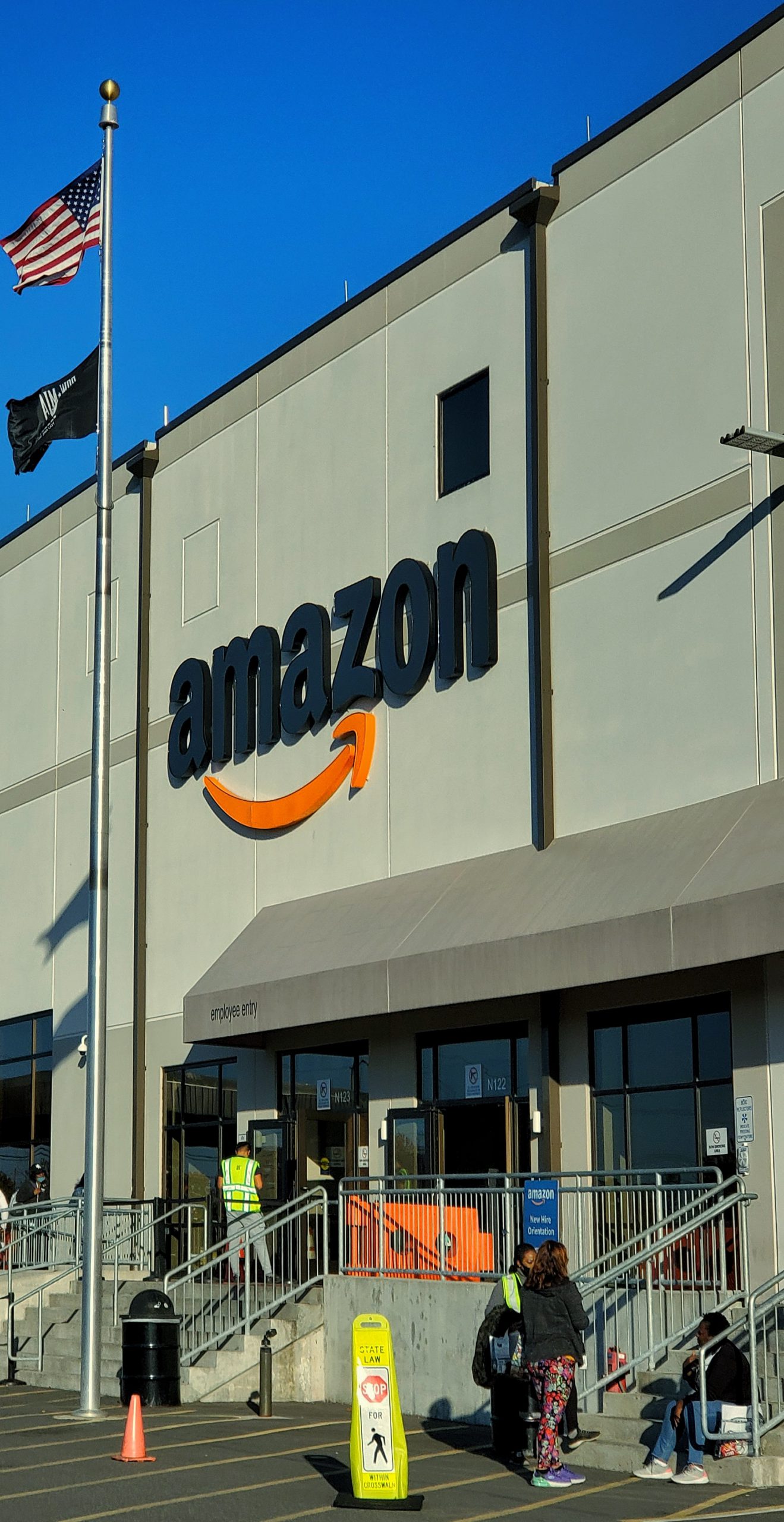
ENGAGEMENT
Our 2022 Q1 report highlights some of the milestones from client engagements over the past three months. Learn more about ongoing engagements as we move through proxy season and usher in new climate and reconciliation commitments.
Table of Contents
CANADIAN BANKS TAKE CLIMATE ACTION
National Bank and Scotiabank engage in investor conversations on climate oversight
In late 2021, SHARE filed two proposals, at Scotiabank and National Bank of Canada, regarding the alignment of the banks’ strategies with the Paris Accord and a 1.5°C scenario. The proposals were filed on behalf of the Trottier Family Foundation and Stephen Whipp Financial, respectively.
“The role of bank lending decisions is among the most important, and least well-understood, levers available to accelerate climate transition,” says Jennifer Story, Associate Director of Climate Advocacy.
Canadian banks have lagged behind their global peers in terms of their climate action, and have been widely criticized for their continued role in financing high-emitting projects. “In the past year, we have started to see Canadian banks play catch-up to their European peers. I am hopeful that their late start will provide Canadian banks an opportunity to move into a leadership position.”
According to Schein, the agreement provides a road map for the kinds of actions others can take.
“We would have been prepared to see the proposals go ahead to votes at each of the AGMs – but in the end, we got a better out come – we will have a seat at the table as these two banks set a pattern across the industry,” said Anthony Schein, Director of Shareholder Advocacy.
Both banks will report publicly to investors on how they’re applying these tools in their engagement and client lending practices, and both have committed to working with SHARE over the course of 2022 as it develops its assessment tools. “Investors have been frustrated in the past by banks’ ‘just trust me’ approach,” said Story, referring to banks’ previous assurances that they were having tough conversations with their lending clients about climate risk. “But, Scotia and National have agreed to pull back the curtain and let investors see whether there is rigour to the approach.”
“When it comes to meeting a 1.5-degree scenario, what matters isn’t just our own direct emissions – but how we leverage our positions to bring down emissions more broadly, through our lending, through our purchasing, through how our products are being used.”


PARIS CLIMATE AGREEMENT ALIGNMENT
Caterpillar emerging from ESG cocoon
SHARE has engaged Caterpillar for several years as part of the CA 100+.
In 2021, we withdrew a proposal, filed on behalf of the Fonds de Solidarite FTQ, based on positive commitments the company made to increasing board-level oversight of climate strategy. For the 2022 season, SHARE opted to file again at Caterpillar. Working with U.S. investor coalition As You Sow, SHARE filed a proposal on behalf of the Canada Post Corporation Pension Plan.
The proposal asks Caterpillar to issue a report disclosing the company’s climate policies, performance, and improvement targets — and whether they are aligned with meeting the goals of the Paris Climate Agreement.
After dialogue between the parties in the winter of 2022, Caterpillar informed the filers that the company would be recommending shareholders vote “yes” to the proposal at this year’s AGM, anticipated to be held in early June. Caterpillar has been slow to make progress on climate transition” said SHARE’s Schein. “But, I am hopeful that the company’s decision to recommend the a ‘yes’ vote is a positive indication that the company will break out of its cocoon and take the transformative steps that are needed to be a leader in the low carbon future.”
RACIAL EQUITY PROGRESS
JP Morgan commits to racial equity audit, Intact Financial to an ‘assessment’
Proposals at Mondelez and Constellation Software proceed to votes
Since 2021, SHARE has worked with allied investors in the United States to ask companies to undertake “racial equity audits”.
During the 2021 proxy season, investors submitted shareholder proposals at the six largest U.S. financial institutions, calling on each firm to conduct a racial equity audit “that identifies, prioritizes, and remedies the adverse impacts of the bank’s policies and practices on non-white stakeholders and communities of color.”
“Racial equity audits are widely accepted by companies and investors alike, as a means to surface biases in workforce practices, products, services – even marketing,” said Anthony Schein, Director of Shareholder Advocacy at SHARE.
Two companies where SHARE filed proposals this year have made significant commitments. SHARE co-filed a racial equity audit proposal at JP Morgan & Chase. The company has committed to undertaking an audit, and the filers agreed to withdraw. SHARE also reached a withdrawal agreement at Intact Financial.
“At Intact, the company agreed to an ‘assessment’ of its frameworks, policies and practices,” said Schein. The assessment includes the company’s data governance principles and workforce practices.
“Banks and insurers operate in a society with systemic racism and inequality. As a result, these types of companies need to be particularly mindful of whether their practices are re-enforcing or compounding existing bias and inequality.”
SHARE’s proposals at Mondelez Inc and Constellation Software will each be put to shareholders for votes this spring. The Mondelez AGM will be held May 18, while Constellation will host its meeting on May 5. percent by 2030.

CANADA’S 2030 PLAN
First Take: SHARE’s early review of the 2030 Emissions Reduction Plan
By Jennifer Story
For many years, responsible investors and climate change activists alike have lamented that Canada never seemed quite willing enough to flex its muscles to reduce emissions.
Would Canada ever be able to meet its emissions reductions targets? Would investor action be enough to make a difference? Issuers frequently pointed to the absence of policy framework and direction as an excuse to not take sufficient action—and, in order to shift the conversation from “if” to “how”, we needed caps on emissions to frame investor-issuer dialogue.
At first blush, it looks like today may be a day for cautious optimism. The federal release of its 2030 Emissions Reduction Plan burned up computer screens across the country as analysts scoured the 250-page plus document for the hard truths that meeting our 2030 targets must entail.
Here is our preliminary breakdown of highlights that fit the bill:
Oil and Gas Targets and Caps
The plan sets targets by sector—including oil and gas, the largest sectoral emitter—which now must contribute a reduction of 31 percent below 2005 levels. The plan points to “increasing stringency in measures to accelerate and deepen emissions reductions, including caps.”
In addition, oil and gas-related methane emissions must be reduced by 75 percent by 2030.
CONTINUE READING
Sustainable Finance
There are a number of references or commitments that support the work of responsible investors and sustainable finance:
- The new collaborative engagement initiative, Climate Engagement Canada, for which SHARE plays a secretariat role, is highlighted as an example of progress in determining low-emission pathways for Canada’s financial and corporate sectors;
- The commitment is being made to work with provinces to create a climate data strategy; and
- Finance and Environment and Climate Change Canada (ECCC) will publish an annual report on financial risks and opportunities related to climate change.
Overall, sustainable finance is referred to as a “cross-cutting policy tool”, and is referenced multiple times in relation to its importance in allocation of capital for new technologies and low-carbon alternatives.
We’re glad to see the document also infuses a commitment to Just Transition approaches and Indigenous partnerships throughout many of its plans and commitments.
Causes for Concern
It’s worth mentioning, of course, that there also are some causes for concern:
- Continued investment in carbon capture could send the wrong signal to an industry that seems to have put most of its eggs in that basket for far too long already. Let’s not forget this is a technology that hasn’t yet proven to be scalable, effective or economically feasible to help with 2050 targets, let alone 2030; and
- Canada still lags on mandatory climate-related disclosures. There is an opportunity here to make emissions reporting mandatory, and inclusive of material scope 3 emissions; and in particular, to look to adopt an equivalent rule currently under consideration, as proposed by the American Securities and Exchange Commission.
There will be lots of news and analysis from all corners in the coming days and months, but one thing is certain: SHARE looks forward to working with our clients and partners to leverage components of this legislation to accelerate momentum with high-emitting issuers in the Canadian and global economy.


SUPPORT FOR INDIGENOUS ECONOMICS
BCE and IA Financial commit to invest in the Indigenous economy, while Toromont Inc recommends a “yes” vote, and Onex Corp holds out
In 2021, SHARE engaged with 23 companies on reconciliation-related topics, including 17 on commitments to “investing in the Indigenous economy”. Last year, three companies – TMX Group, Sun Life Financial and Great-West Life – made new commitments to certification under the Canadian Council for Aboriginal Business’ (CCAB) Progressive Aboriginal Relations (PAR) certification program.
For the 2022 season, SHARE filed four additional proposals with the same ask – to report to shareholders on, among other issues, procurement from Indigenous-owned businesses and certification under external, Indigenous-led standards. The proposals were filed at Toromont Inc, on behalf of the Atkinson Foundation; BCE Inc, on behalf of the Mississaugas of the New Credit First Nation Community Trust; at IA Financial, on behalf of the Daly Foundation; and at Onex Corp, on behalf of the Catherine Donnelly Foundation.
“We are pleased to share that BCE Inc., and IA Financial worked with us to reach withdrawal agreements”, said Joseph Bastien, Manager of the Reconciliation and Responsible Investment Initiative at SHARE. “Both companies have engaged positively and constructively with SHARE, and take their reconciliation journeys, and commitments seriously.”
According to Anthony Schein, Director of Shareholder Advocacy at SHARE, Toromont has historically taken a milquetoast approach to ESG issues. “This year, the company’s attitude has shown a marked improvement.” The company did not agree to specific commitments that would have allowed SHARE to withdraw the proposal. Instead, the company is recommending that shareholders vote in favour of the proposal at its April 28 annual meeting.
Onex Corp is the lone holdout. “Our discussions with Onex have not been productive to this point,” Schein continued. The company is alone, among the four where we have filed proposals for 2022, that has flatly declined to make any commitments to reconciliation through this engagement. The company’s AGM will be held May 12.
UNION MOVEMENT
Engagements with Amazon and New Flyer International put right to freedom of association in the spotlight
The story of the successful unionization drive at a Staten Island, New York Amazon fulfillment centre will be the stuff of future myth-making.
A fired worker, Chris Smalls, described by company executives in leaked emails as “not very smart or articulate” comes back to lead the first ever successful unionization of a North American Amazon facility, by a commanding margin. The company spends more than $4 million USD on “union avoidance” consultants, while the independent Amazon Labour Union pulls off a victory with support of crowd-sourced fundraising, and the home cooking of organizers and their families.
As of early April, a re-vote, ordered by the National Labor Relations Board, for workers at the company’s Bessemer, Alabama facility was still too close to call.
The decline of private sector unionization in North America has been a pre-occupation for union leaders and some policymakers since the 1990s, as decreased “union density” has tracked alongside increased measures of inequality (including by race and gender), and decreases in wages and benefits. Researchers point to many factors to explain the decline – including lost manufacturing jobs, regulatory changes and public opinion. One contributor to the decline is the emphasis that companies have placed on “union avoidance” – an industry estimated by the U.S. Economic Policy Institute to be worth $340 million USD. “Not only is ‘union avoidance’ hugely profitable for consultants, some of the tactics employed may run afoul of Canadian and international standards, including the ILO’s Declaration on Fundamental Principles and Rights at Work,” said Anthony Schein, Director of Shareholder Advocacy at SHARE. Commonly identified tactics include “captive audience” meetings. At Amazon, it was widely reported that the company sent text messages to employees encouraging a “no” vote, and even posted anti-union messages in bathroom stalls.
SHARE has had recent engagements with Amazon and NFI Inc (formerly New Flyer), both focused on how these companies uphold international standards.
According to Schein, “Investment risks exist when there is a disconnect between a company’s stated approach to labour rights and what happens in practice.” Companies like Amazon and Starbucks have faced a torrent of unionization efforts – and negative media attention to go along with it.
CONTINUE READING
At NFI, SHARE filed a shareholder proposal in March 2022, on behalf of Stephen Whipp Financial and the Glasswaters Foundation. The proposal called on the company to adopt and disclose a policy on “union neutrality” and how the company would ensure compliance with the ILO Fundamental Principles. “NFI has a heavily unionized workforce in Canada,” Schein said, “but much of its U.S. workforce is in so-called ‘right to work’ states, where meeting the minimum standard of local law is simply not good enough.” SHARE and NFI had active discussions over the course of March. “We agreed to withdraw the proposal, based on the important commitments that NFI made.” These commitments include an update to the company’s Human Rights Statement, and Code of Business Conduct and Ethics, to include an explicit commitment to “respect the right to freedom of association and to not undermine or pressure any employee from exercising that right” and an explicit commitment to upholding the Fundamental Principles.
NFI is a 100-year-old Canadian firm, and among the largest manufacturers of electric buses in the world.
“Ensuring the highest standards of human capital management in low-carbon sectors is an important element of a just transition,” Schein added.
At Amazon, SHARE filed a shareholder proposal, on behalf of the Catherine Donnelly Foundation, which requests “report analyzing how Amazon’s current human rights policies and practices protect the rightful application of the fundamental rights of freedom of association and collective bargaining as guaranteed by the ILO Declaration on Fundamental Principles and Rights at Work, and the UN Universal Declaration of Human Rights.” The proposal adds that “Some shareholders have themselves come under scrutiny for investing in companies that are linked to human rights abuses, making effective due diligence on the company’s human rights practices material to their investment choices.”
While SHARE has engaged in discussions with the company, and Amazon did recently release a report on “Amazon’s Human Rights Commitment, Policy and Practice: Freedom of Association and Collective Bargaining,” according to Schein, the report is “cursory, at best.” The proposal will be voted on at the company’s AGM in May.
Amazon is under pressure from investors on a broad range of ESG issues, including tax transparency, racial equity and sustainability. You can learn more about some of the proposals on the ballot this year at a webinar, scheduled April 27, organized by the Global Unions’ Committee on Workers Capital and the SOC Investment Group.

Are you interested in joining SHARE’s engagement program?
Shareholder engagement is a responsible investment strategy that enables investors to use their voices as shareholders to support better corporate sustainability policies and practices.
Learn More